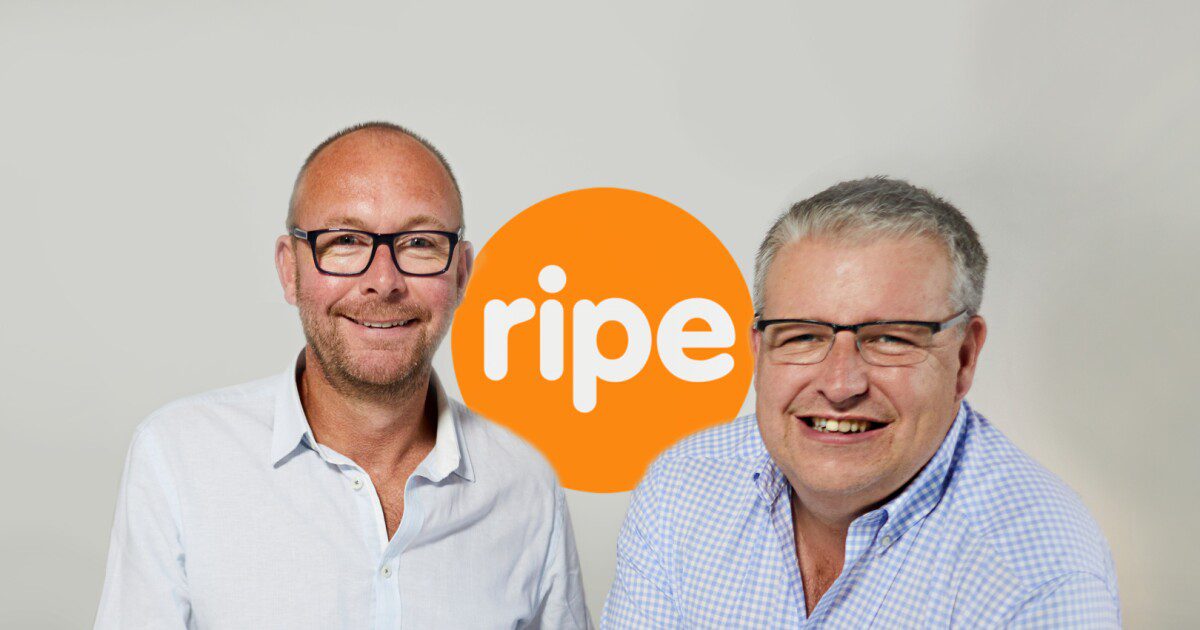Meet the insurtech: Ripe Thinking

How might an insurer go about covering activities and assets that one might imagine are high-risk and difficult to cover? Ripe Thinking Ltd., a U.K.-based digital underwriting platform, says the answer is “microservices.”
Paul Williams, CEO, Ripe Thinking
Mark Waugh /Mark Waugh Manchester Press Phot
Microservices are “a way of architecturing a tech platform which uses individual services that do one thing each,” says Paul Williams, CEO of Ripe. “It is the cutting edge way of building tech platforms and allows a nimbleness, pace and ability to scale that is not possible with legacy IT systems.”
Ripe underwrites and distributes coverage for coaching sports teams (at all levels from youth to professional), cycling, extreme sports, DJs, golf, shooting (for hunters and sport), caravans (better known in the U.S. as RVs), boats, photography and more.
Ripe’s platforms showed their flexibility at the start of the pandemic in 2020 when its Insure4Sport product covering fitness instructors added coverage to fund virtual workout capabilities after gyms all closed, recalls Williams.
“Over that weekend, we worked out, product by product, the implications of a lockdown,” he says. “We realized that for personal trainers, with gyms closed, they still want to work and earn money, but can’t go to work to do it. The obvious answer was that they would try and train online, but none of the coverages available provided that coverage. The lockdown occurred on the Sunday night. By Monday, we were out with the new offering.”
Word of this offering spread quickly on social media, according to Williams. “It taught us that … being able to act at pace is a definite commercial advantage.”
On that basis, investment firm Aquiline Capital Partners acquired a majority stake in Ripe Thinking in November 2021. With this backing, Ripe is accelerating work on a behavioral analytics AI program, which will evaluate why an insurance customer might be inclined to get a particular Ripe coverage product, while other customers might not. “We’re working with one of the U.K.’s leading universities to build an algorithm that helps us serve the right proposition for a customer to convert them,” says Williams.
This behavioral analytics program is in keeping with the company’s original focus when it was founded in 1997 as a marketing agency (later becoming a digital marketing agency). “Over the years, it morphed into insurance,” says Williams, who joined in 2016, “and then jettisoned the agency side and fully became an insurance business.”
Still, Ripe’s work with AI and machine learning also has a marketing function, being used to learn customer behavior and predict which customers might leave so that the company can adjust to their needs and prevent their departure, according to Williams. Ripe Thinking “hyper-targets” customers, presenting itself as a specialist in each coverage area, rather than trying to package coverages together as traditional carriers do, he says. This is in keeping with its microservices operational model.
“A lot of the online offerings [from traditional carriers] are pretty clunky,” says Williams. By avoiding tech stack combinations, Ripe can focus on addressing particular and specific questions and needs. “A lot of insurers still take this generic approach of trying to package things up and just serve their questions in a very generic way, which doesn’t really work,” he says.
The next step for Ripe Thinking is to expand beyond its U.K. base. “We are reaching capacity in certain segments,” says Williams. Ripe ranks high within the U.K. as an insurer for golfers, fitness instructors and cyclists.
“If we want to keep the growth accelerating how we want to, and we’ve got big ambitions, then we need to think about lifting and dropping the model into a second territory,” he adds. “Part of the thesis with Aquiline was around globalizing the business. … You’ll see us working in that direction. We’re doing the work at the moment, looking at the challenges of spinning up in different territories where there’s different buying behaviors by customers and different regulatory challenges. We expect to look at an international expansion in the next few years.”



